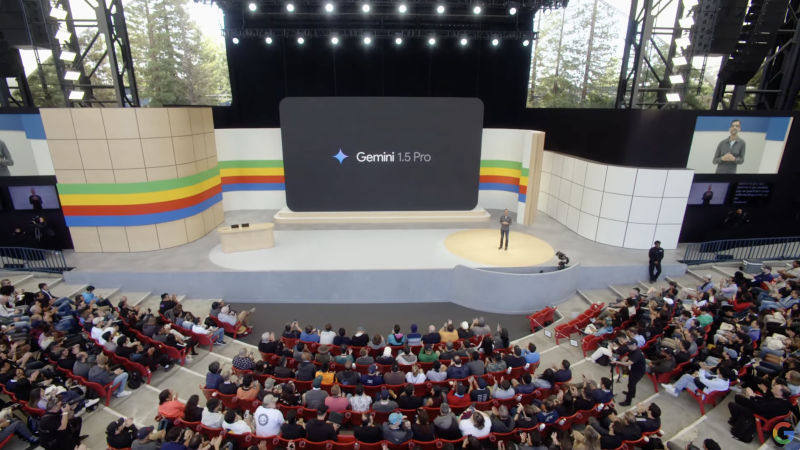Google made significant updates to its AI during its annual Google I/O developer conference, highlighting how AI will improve the products used by billions of people every day. With artificial intelligence at the forefront, Google introduced its latest AI model Gemini 1.5 Pro and showcased various features, such as Ask Photos that allows users to search photos for deeper insights and the ability to summarize emails and texts. The company aims to make its AI products a bigger part of users’ lives by providing assistance in various tasks and interactions throughout the day.
In response to OpenAI’s improved ChatGPT model, Google also displayed its own advancements with Gemini’s multimodal capabilities that allow it to process text, voice, and images efficiently. The company demonstrated how Gemini 1.5 Pro could assist with various tasks, including organizing data, managing workflows, and providing targeted suggestions. Additionally, Google highlighted search improvements, natural language processing, and the integration of AI functions into smartphones later this year, allowing for enhanced user experiences and easier access to information.
Google briefly teased Project Astra, developed by Google’s DeepMind AI lab, which aims to utilize AI assistants to help users in everyday tasks using phone cameras to interpret information about the real world. The company also hinted at the future integration of AI technology into augmented reality glasses, expanding the capabilities of AI in various devices and applications. By focusing on making AI more accessible and beneficial to users, Google aims to differentiate itself from competitors and meet the demands of the generative AI era.
Analysts believe that Google’s emphasis on AI innovation at the developer conference is crucial for the company to differentiate itself and satisfy investors. By showcasing how AI models power existing products and services with strong consumer reach, Google demonstrates its ability to adapt to the changing technological landscape. However, with the expansion of AI capabilities comes the need for additional protections to prevent misuse. Google is working on integrating safeguards into its AI models and collaborating with experts and institutions to improve their capabilities and minimize the risk of potential issues.
Despite the advancements in AI technology, Google has faced challenges with its AI tools, such as inaccuracies, biases, and misinformation. The company has made efforts to address these issues by implementing safeguards like SynthID and partnering with experts to improve AI models. However, the road to AI integration is not without obstacles, as seen with past incidents where AI tools generated inaccurate or biased content. While companies continue to invest in AI development and partnerships, they must also be vigilant in addressing potential shortcomings and ensuring responsible use of AI technology to avoid negative repercussions.
Looking ahead, Google’s continued focus on AI innovation and integration into its products and services will be crucial for maintaining its competitive edge and driving profitability at scale. By translating AI advancements into practical applications that benefit users and meet market demands, Google aims to position itself as a leader in the AI industry. With ongoing advancements and collaborations, Google strives to harness the potential of AI technology to enhance user experiences, improve efficiency, and drive innovation in various sectors.













